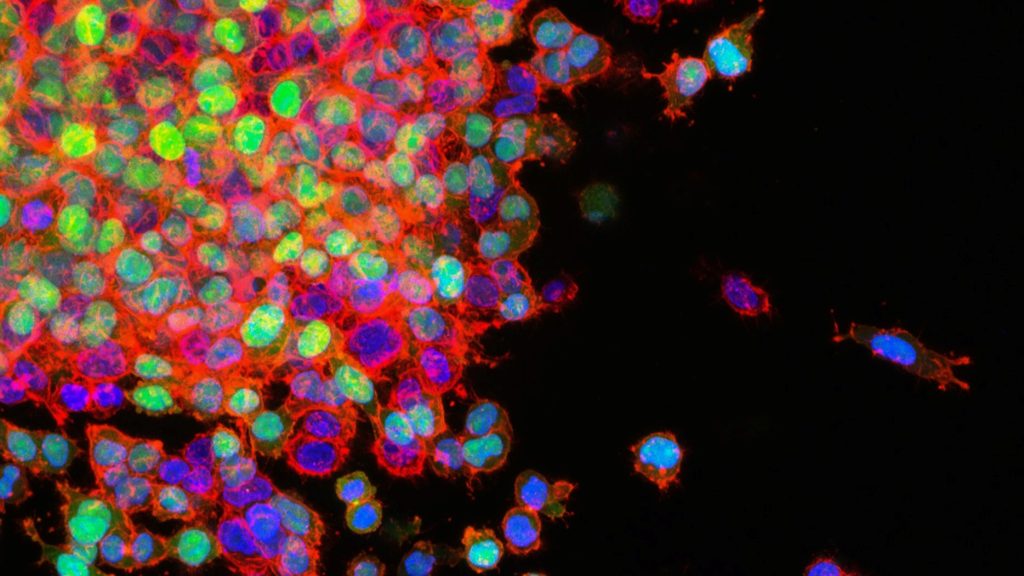
In research published in Nature Communications, scientists have tested a combination of treatments in mice with lung cancer and shown that these allow immunotherapies to target non-responsive tumours.
The study findings, from Francis Crick Institute, in collaboration with Revolution Medicines, show that targeting tumours in different ways simultaneously might increase response to treatments.
The scientists tested a combination of tool compounds in mice with lung cancer. These compounds were used to represent:
- Targeted drugs which block a cancer-causing protein called KRAS G12C. These have been approved for use in lung cancer, but often fail to benefit patients in the long term because the tumours develop resistance to these medicines over time.
- Immunotherapy drugs. These are designed to stimulate the immune system to fight the tumour, but only 20% of people with lung cancer respond, as tumours often block immune cells from entering.
The researchers combined a newly identified KRAS G12C inhibitor, with a compound that blocks a protein called SHP2, which inhibits cancer cells and can also activate tumor immunity.
These two inhibitors were combined with an immune checkpoint inhibitor, which blocks proteins that help the cancer cells hide from the immune system.
Source: Francis Crick Institute

